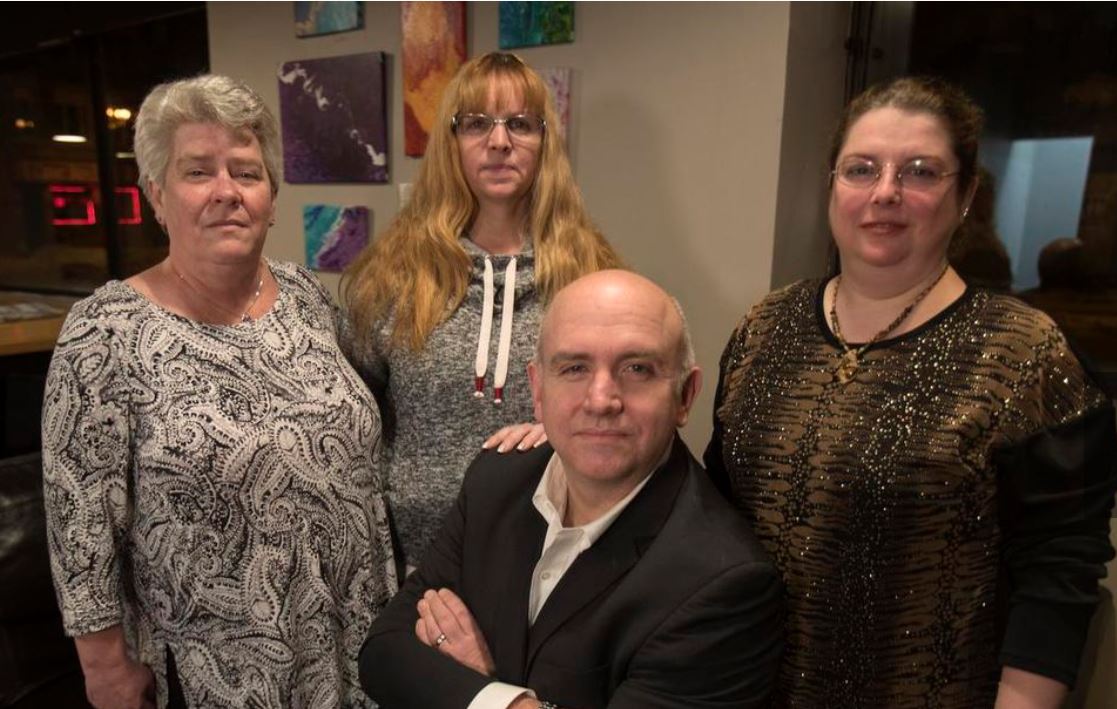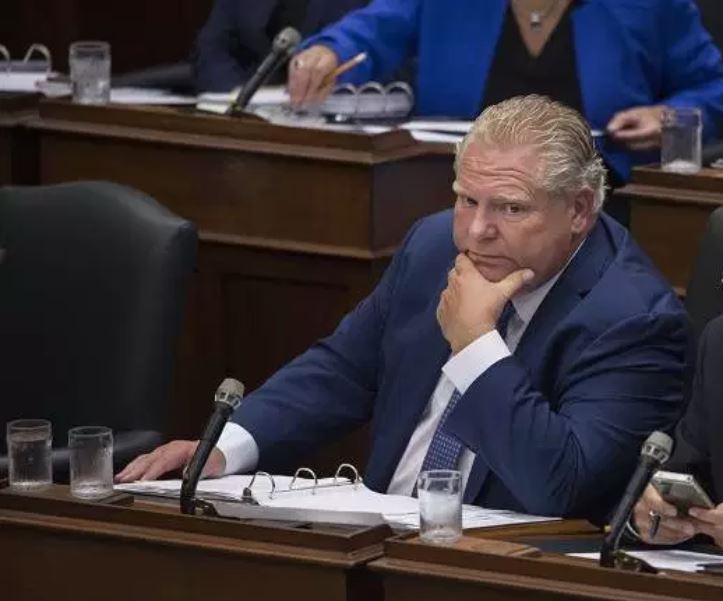
Ontario is a large province in Canada which borders the United States. Last month, their Basic Income (BI) pilot scheme was ended early. In April 2017, while the Liberal Party was in power in Ontario, they started a BI pilot scheme with about 4,000 people in the test communities of Hamilton-Brantford, Thunder Bay and Lindsay. It was supposed to run for three years but was cancelled by the incoming Tory premier, Doug Ford, who was elected in June 2018.
We wanted to know more, and why a group of women, including disabled women, went to court to challenge the cancellation. We asked John Clarke, from the Ontario Coalition Against Poverty (OCAP).
WinVisible (WV): For non-disabled claimants, the Ontario Basic Income was higher than the existing benefits, but what did disabled people lose or gain from the pilot?
John Clarke: “The income from the pilot was your lot (except you still kept your ‘drug card’ to cover meds). [Compared to the Ontario Disability Support Program] you lost income for special diet and had to pay for hearing aids, eyeglasses, support dogs, medical transportation (in northern Ontario, that means air travel) and mobility devices. This meant people with high support needs might go on the pilot and take the risk of not incurring major costs. It would also mean that a lot of people would conclude they would be worse off and not go on the thing. Had it continued, the final evaluation would have tended to exclude a big grouping of disabled people who need support with travel and mobility issues.”

WV: OCAP opposes Basic Income, the incoming Tory premier cancelled it, and some people — low-income and disabled women — fought to keep it. Can you explain this?
John: “It’s a tough situation and I’ll try to get to the key issues here. When the Tories were campaigning for office last summer, they said they would retain the BI pilot in Ontario. Once elected, however, reality set in for them. They want to go all out for a super-exploited workforce and began by cancelling minimum wage increases. In line with this strategy, they understood that the income support system had to be weakened. The right is as divided on BI as is the left. Like the UK Tories, the Ontario crowd oppose it on the grounds it would make it harder to club people into low paid work. Here’s an interesting piece by the federal Tory finance critic [similar to Shadow Chancellor — the Liberal Party is the national government in Canada, headed by Justin Trudeau], written in Canada’s version of The Telegraph, that argues BI could serve the neoliberal agenda if it was not too generous: https://business.financialpost.com/opinion/ontarios-basic-income-plan-was-the-welfare-state-on-steroids-but-it-didnt-have-to-be
QUOTE:
Nobel-prize winning free enterprise economist, Milton Friedman, proposed . . . replacing the entire welfare state with a simple basic income — a tiny survival stipend for all low-income people to be gently phased out as they earned money . . . governments would pay for Friedman’s basic income by eliminating all other programs, including housing, drug plans, child care and the bureaucrats who administer it all. Far from replacing the welfare state, which was Friedman’s first goal, Ontario’s proposal fed the beast more money and people.
“Anyway, the Doug Ford Ontario Tories couldn’t accept the BI pilot because of the issue of reduced conditionality [not subjecting people to work conditions and sanctions]. They want more rules and intrusion and could not have a parallel system, even on a small scale, that was less rule-bound. They are moving to a bunch of ‘social assistance reforms’ that will focus on redefining disability and closing the door to the Ontario Disability Support Program (ODSP) for many people. It will also use something similar to the UK Claimant Commitment to force people into the worst jobs. BI is just too sophisticated for them. They prefer a good old Poor Law approach with lots of rules, sanctions and moral policing.”
“That’s why the pilot was killed. However, this leaves 4,000 people who were on it in a bad situation. There were a mix of low wage, very precariously employed workers and others who had been on disability or unemployed benefits. They had been promised income for three years on the pilot. While the benefit was sub poverty, it was more than the social assistance rates and of great use to someone with low and unpredictable earnings. We never dispute that pilots that give a bit more money to very poor people will make them a bit better off. The issues with BI are around what would happen if it were introduced throughout a major political jurisdiction.”
“Some of the people on the pilot and many fans of BI hoped they could save the pilot. They went with a predictably failed attempt to get a court to reverse the cancellation. Unlike the UK’s informal constitution, there is a Canada Act here that includes a Charter of Rights and Freedoms based on the right to ‘life, liberty and security of the person.’ However, the courts have consistently ruled that there are no ‘positive’ rights to housing and income, despite those noble words. It was a given that the court would rule in this matter as it did.”
“OCAP’s position on this stuff, is to maintain our general opposition to BI while fighting the new Tory reforms. However, we also say that the people who were on the pilot should get the income they were promised and planned their lives around, regardless of our view that it was a test run for a neoliberal system of BI.”
Read more about the February Superior Court case here.
Discover more from WinVisible
Subscribe to get the latest posts sent to your email.

The only personin the UK that has considered this is the JC and everyone else thinks universal credit is the bees knees and it doesn’t even work.
Thanks for your comment, who is the JC?